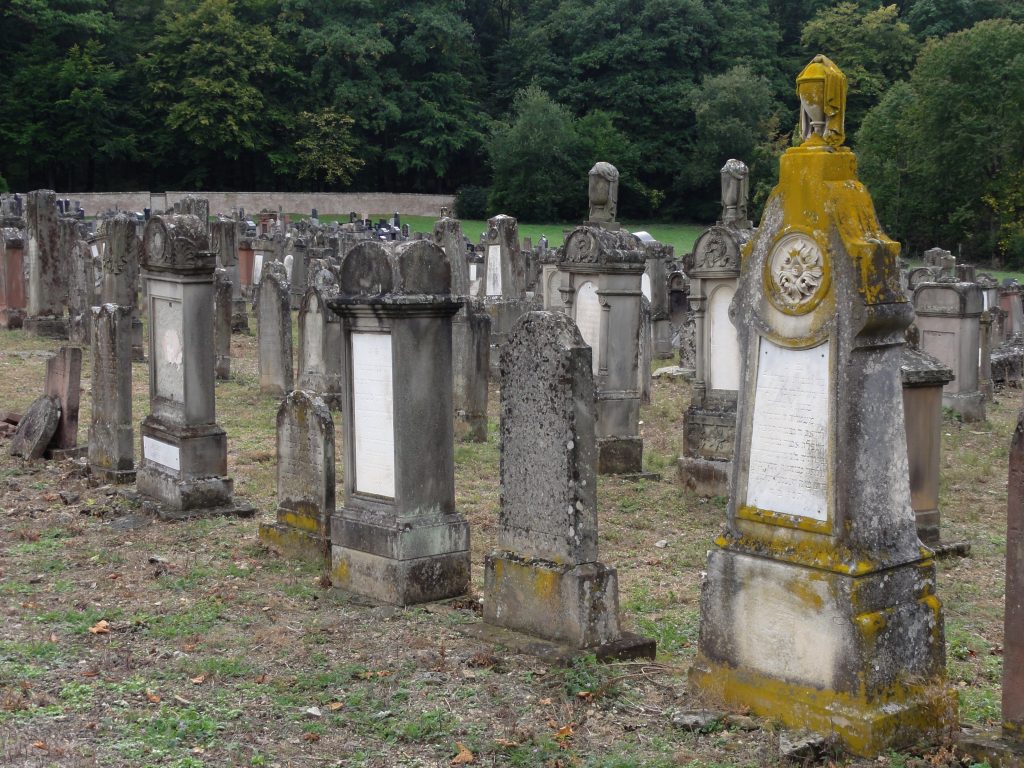The Jewish presence in Rosenwiller dates back at least to the 14th century, a writing by Charles IV, mentioning the Jewish cemetery. A letter dealing with a dispute with a certain Haym de Rosenwiller, addressed to the Strasbourg Magistrate in 1550, was also found.

In 1727 the Jews, who had been burying their dead here for nearly four centuries, were granted permission to build a wooden fence around the cemetery and, twenty-two years later, a stone wall. With 6470 tombs over twelve acres, Rosenwiller’s Jewish cemetery bears witness to a long history: the oldest tomb dates from 1657.
As you walk through the old part of the cemetery, you will find here and there small Hebrew poems to the glory of the deceased and recurring symbols: broken columns for children and young women who died without offspring, Shabbat lamps for pious women, jugs for the Levites, blessing hands for the Kohanim (according to tradition, the Levi and the Cohen come from tribes consecrated to the priesthood)
A collective book published in 2020, Rosenwiller: a Jewish presence throughout the century (I.D. Editions) tells the long Jewish history of Rosenwiller. That of the cemetery, but also the daily life of the Jews in the town, with its moments of happiness and turmoil. By presenting personal stories, objects, the Holocaust and the people involved in the rescue of the Jewish cultural heritage of Rosenwiller.
In 2022, 93-year-old death camp survivor Simone Polak unveiled a plaque at the Rosenwiller Jewish cemetery in tribute to her grandparents Caroline and Benjamin Bloch, the last guardians of the cemetery.
The Knacker’s Square
“When the Jews asked for a place to bury their dead (around 1350), they were shown a huge, arid square in Rosenwiller at one end of which the slaughterer buried dead horses. At the other end, they were allowed to bury their deceased coreligionists”.
Élie Scheid, Histoire des Juifs d’Alsace (History of the Jews of Alsace), 1887 (Paris: Librairie Armand Durlacher, Reprint Willy-Fischer, 1975).
Sources : judaisme.sdv.fr, Akadem